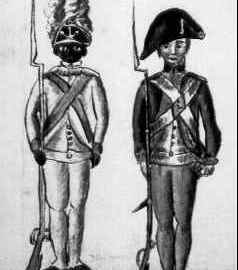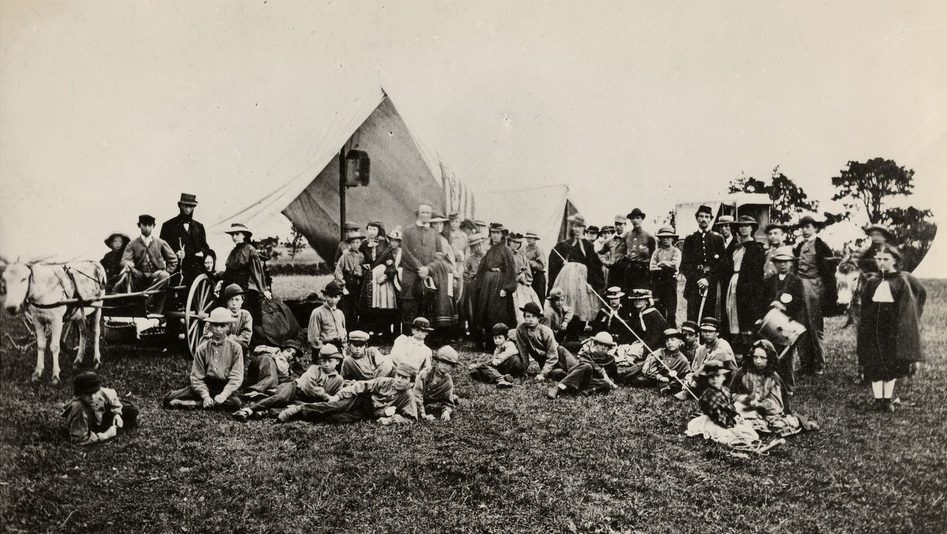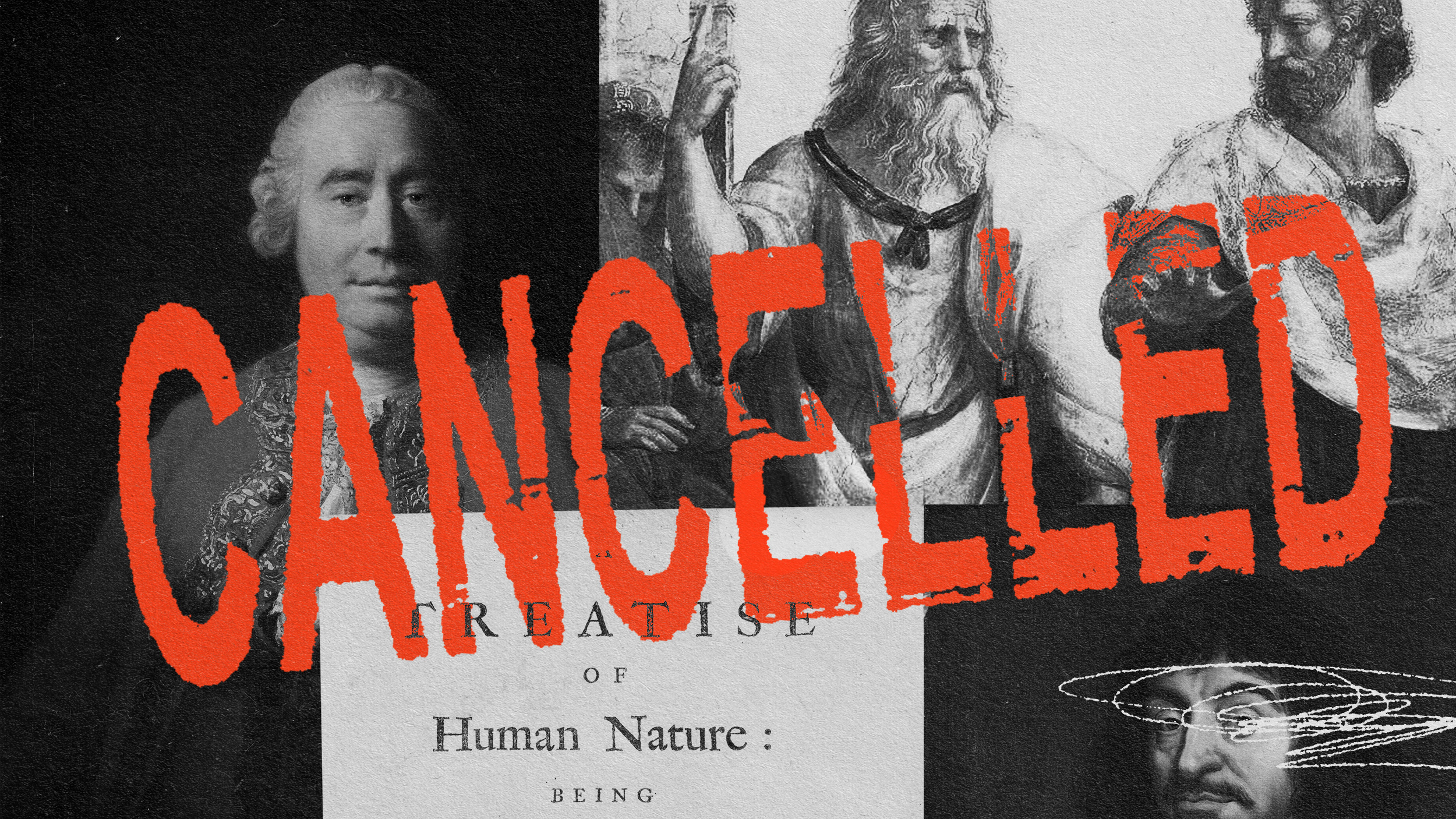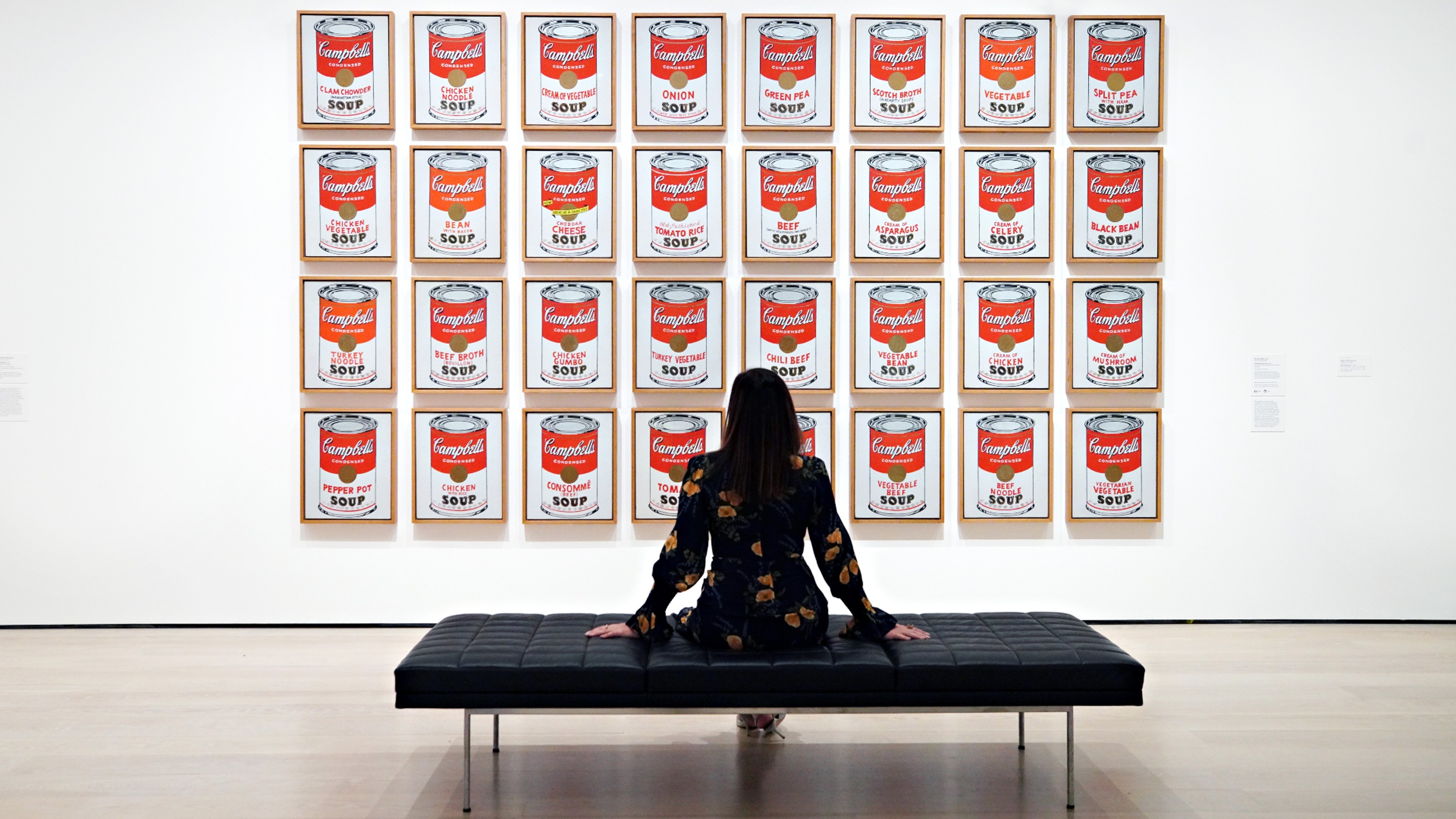Black Revolutionary War Patriots Integral To Defeat Of British Army

The Fourth of July is one of our most patriotic holidays. The famous portrait of Revolutionary era soldiers marching with fife and drum is one of its most recognized symbols, but until recently, I didn’t realize that it wasn’t a complete picture of the American troops. None of the history books I studied back in high school mentioned any African American soldiers other than Crispus Attucks, so I was surprised last year to find out that there were thousands of black patriots who fought valiantly against the British, playing an integral role in the Continental Army’s victory.
So I spent a little time on Google and started learning a lot about a part of America’s history that has either been ignored or largely excluded from the official narrative about our country’s violent birth.
African Americans – free, slave, and ex-slave – fought side by side with white colonists seeking independence from British domination. GEORGE WASHINGTON, as Commander of the Continental Army, forbade the enlistment of Blacks – free, slave, or ex-slave – during the early stages of the war. He later learned that the Royal Governor of Virginia, John Murray, Earl of Dunmore, was enlisting slaves and indentured servants into the British army with the promise of “freedom to all slaves who would join the King’s army.” Dunmore’s tactic of lifting the ban on Blacks enlisting in the British army led George Washington to change his mind, and, therefore, Blacks later joined the CONTINENTAL ARMED FORCES.
[Excerpted from African American Patriots of the Revolutionary War]
These are the names of a few of the African American men who served as soldiers in the Revolutionary War.
Salem Poor * Oliver Cromwell * Lemuel Haynes * Primas Black * Prince Whipple * Charles Davis * Joshua Dunbar * Samuel Dunbar * Prince Easterbrooks * James Forten * Doss Freeman * Tobias Gilmore * Peter Galloway * Primas Hall * Job Hathaway * Ebenezer Hill * Thomas Hollen * Peter Jennings * Abrose Lewis * Titus Minor * Jerimiah Moho * Pomp Peters * Cato Prince * Esek Roberts * Caesar Sankee * Prince Vaughn * Sipeo Watson * Cuff Whitemore * Jesse Wood * Epheram Black
Approximately 5,000 black men served in the Continental Army. Roughly 12,000 Blacks served with the British from 1775 to 1783. Since we have a hard time today counting everybody in the country, even with all the technology and sophisticated techniques we’ve got, if I were you I’d consider these educated guesses by those culling the records that still survive. The Daughters of the American Revolution (DAR), who began a major research project to record the names of African American soldiers as the result of a lawsuit from a African American woman descendant of a black Revolutionary War patriot who was denied admission, continues to add names to its list.
In any case, there were significant numbers of black people, from the beginning, who were willing to enlist in the what was essentially a start-up, with no guarantee that their status as a class would change if their side won the war. Many of them gave their lives anyway.
Unfortunately, the end of the war didn’t bode well for its African American participants, despite their battlefield heroics.
The African American Patriot who gave loyal service to the Continental Army found that the postwar military held no rewards for them. State legislatures like Connecticut and Massachusetts in 1784 and 1785 banned all blacks, free or slave, from military service. Southern states banned all slaves but some states allowed free men to serve in their militias. In 1792, the United States Congress formally excluded the African American from military service, allowing only “free able-bodied white male citizens” to serve,
African Americans in the Revolutionary War Wikipedia




